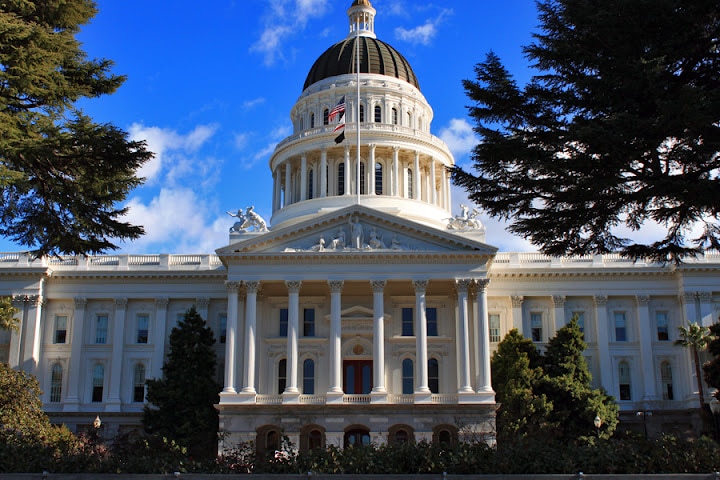As California’s Global Warming Solutions Act, AB-32, approaches its 10th birthday, Big Oil is renewing efforts to roll it back and the governor and pro-environmental lawmakers in Sacramento are racing against the clock to counter the onslaught.
AB-32 set a 2020 target to reduce greenhouse gas (GHG) emissions to 1990 levels. But a key part of it, the cap-and-trade program, will sunset in 2020 unless legislators and Governor Jerry Brown can come up with a new law to let it continue.
Cap-and-trade uses a cap to gradually lower limits on emissions and a “trade” to raise money through the auction sale of carbon credits. Funds from these credits are earmarked for projects like the state’s bullet train, which many California lawmakers, including some Democrats, are skeptical of.
Last month, Brown and Western States Petroleum Association (WSPA) president Catherine Reheis-Boyd admitted to confirmed reports of ongoing negotiation between the governor and oil industry groups on the issue of AB-32, though they didn’t disclose exactly what they’ve discussed.
Reauthorization of cap-and-trade is in the balance due to a lawsuit brought by WSPA’s ally, the California Chamber of Commerce. The suit questions its legality and asserts that auctioning cap-and-trade credits constitutes a fee or a tax on Californians. If the state appeals court agrees with the Chamber, reauthorizing cap-and-trade would require a two-thirds majority vote.
In April, appeals court justices asked for additional information about the Chamber’s arguments, which was widely interpreted as a sign the justices are at least somewhat sympathetic to the Chamber’s case.
The governor and the overseer of the program, California’s Air Resources Board (ARB), say the language in AB-32 allows the state to continue the program and set new emission standards without the legislature’s approval. But Brown’s negotiations with oil lobbyists, including WSPA, suggest he’s not taking any chances.
Climate advocates worry about the kind of compromises Brown could make with Big Oil to peel off a few Republicans and “moderate Democrats.” The Democratic party dominates California politics, but Dems are three votes shy of a two-thirds legislative supermajority.
“What frustrates (climate activists) is that Brown is negotiating with the same lobbyists that less than a year ago he was damning for blocking part of SB350,” Linda Capato Jr., fracking campaign coordinator for 350.org, tells DeSmog.
There are efforts in the Legislature to move ahead with Brown’s climate agenda no matter what is decided by the appeals court.
Senator Fran Pavley (D-Agoura Hills) is pushing SB-32, which can be passed on a simple majority vote, to extend the GHG emissions reduction target to 2030, requiring that global warming pollution be rolled back to 40 percent below 1990 levels by then. SB-32 has no provision for cap-and-trade.
A companion bill, AB-197, introduced by Assemblyman Eduardo Garcia (D-Coachella), includes transparency and accountability provisions for climate policy. It would also put an emphasis on benefiting disadvantaged communities. Both bills have to be enacted for either to take effect.
A more ambitious version of SB-32 was introduced in the Assembly in 2015 – extending the target to 2050 – but it failed due to intense lobbying from business and oil interests.
A spokesperson for Sen. Pavley tells DeSmog that passage of SB-32 and AB-197 this year would “send a strong signal of certainty to the marketplace and to the public that California’s commitment to rolling back GHG emissions remains firm and on track.”
Another piece of climate legislation, introduced by Senator Ricardo Lara (D-Bell Gardens), SB 1383, focuses on short term climate pollutants such as methane.
The legislative clock is ticking. Any bills passed in this session must be on Governor Jerry Brown’s desk by August 31.
The ghost of SB-350
For climate advocates and the governor the fight over cap-and-trade and the extension of SB-32 has is just the latest in a long series of skirmishes with Big Oil.
In 2015, Brown strongly backed SB-350, Senate President Pro Tem Kevin de León’s ambitious bill to reduce California’s reliance on petroleum. Also known as the Clean Energy and Pollution Reduction Act of 2015, SB-350 had three goals to achieve by 2030: cut oil consumption by 50 percent, increase the renewable portfolio standard (RPS) and double energy efficiency.
WSPA and oil interests including Chevron, Valero, and Tesoro leaned on the Assembly’s moderate caucus to weaken the bill and funded a PAC, Californians to Restore the Middle Class, with $5.5 million to pay for ads and direct mailers denigrating SB-350 as “The California Gas Restriction Act of 2015.”
The result: the so-called moderate caucus of pro-business Democrats helped to remove a key piece of the bill, the provision mandating a 50 percent reduction in oil consumption.
“Oil has won a skirmish,” Brown said in September. “But they lost a bigger battle, because I am more determined than ever to make our regulatory regime work for the people of California.”
Brown added that his zeal on climate change measures had been “intensified to a maximum degree.”
Still defiant, Brown got most of what Big Oil denied him in SB-350 through the budgeting process. In January he submitted a budget to the Legislature that proposed spending a third of the state’s cap-and-trade funds on public transit and promoting electric vehicles with the goal of cutting oil use by 50% by 2030.
Climate advocates say oil interests are energized by their victory in gutting SB-350. Capato says anything negotiated with WSPA or oil interests is not likely to be good for California.
“But if Brown doesn’t let them in, they will block him,” Capato told DeSmog. “That’s why he has them in the room. He does not necessarily have the upper hand here. WSPA does. They are dumping money into elections and manipulating the public. Because of this he has to negotiate with them.”
Why California?
Even as they negotiate with Brown, the oil lobby continues to attack SB-32 through groups with grassroots-sounding names. Californians for Affordable and Reliable Energy (CARE) and Californians Against Higher Taxes question the viability of cap-and-trade and portray the state’s investments in clean energy as a waste of public money. The California Drivers Alliance pushes the narrative of gas shortages. The “Fed Up at the Pump” sticker campaign by the California Independent Oil Marketers Association back up the California Chamber of Commerce lawsuit saying cap-and-trade is an illegal tax on residents.
Climate advocates say cap-and-trade is a market-based program with global implications, and as California goes, so goes the U.S., and maybe the world. That’s why California is ground zero for the oil and gas industry’s lobbying efforts, according to Susan Frank, director of the California Business Alliance for a Clean Economy.
“The narrative that WSPA is putting out in the public domain and the Legislature is that our climate program, which has been in place for a decade, shouldn’t go beyond 2020,” Frank tells DeSmog. “WSPA and its allies clearly want to end California’s efforts to lead on climate change.”
Nevertheless, a statewide public opinion survey conducted by the nonpartisan Public Policy Institute of California shows public support for AB-32 is at a near all-time high. Sixty-nine percent of Californians now support the law and support is strongest among Latinos and lower income people.
Time is on Big Oil’s side. Not only is there a short window on California’s current legislative session, there’s little time to act to stabilize the global average temperature that climate scientists say could lessen catastrophic damage from climate change. Capato and other climate advocates say oil lobbyists might be satisfied with running out the clock.
If the oil industry can’t stop or roll back progress on climate legislation in California, they hope to ensure that legislators kick the can down the road.
Blog image credit: Wikimedia Commons
Subscribe to our newsletter
Stay up to date with DeSmog news and alerts







